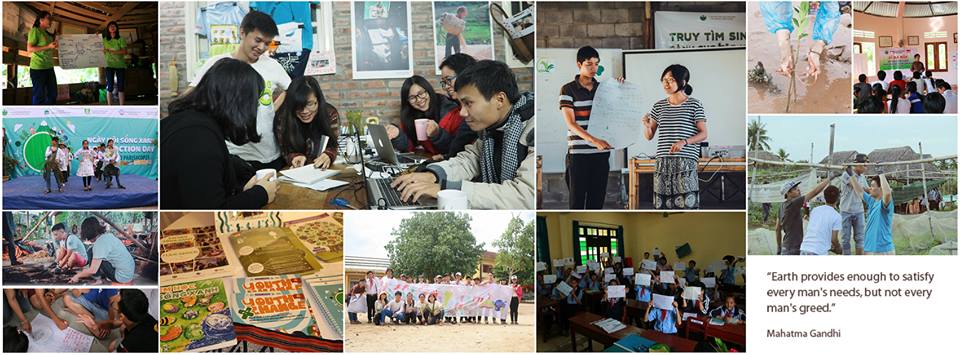[RECAP TRAINING PROGRAM ON WASTE AND SMART WATER CONSUMPTION/ WATER PROTECTION IN THANH KHE, HOA VANG]
In 4 days, March 28-31, 2022, C&E held training sessions on the topic of waste and smart water consumption in Thanh Khe and Hoa Vang districts. There were two lecturers who accompanied the training sessions: Quach Thi Xuan, coordinator of the Vietnam Zero Waste Alliance and Dr. Le Anh Tuan, Deputy Director of the Climate Change Research Institution, (DRAGON – Mekong Institute); Senior Lecturer at Faculty of Environment and Natural Resources, Can Tho University.
With the participation of local officials and people of Thanh Khe and Hoa Vang districts, the training program was successful and achieved many good results.
In 2 training sessions on the topic of garbage, lecturer Quach Thi Xuan organized some activities, including making statistics on the types of waste in the participants’ households, and learning about regulations on waste disposal based on the rules of government in Da Nang, models of waste classification and treatment in residential areas, non-waste models in another countries around the world, and solutions to implement these models in residential areas.
At the session, the participants shared about the types of waste occured in the family, the cause, and the household’s current solution. They also discussed the reasons why it is important to segregate household waste. The lecturer shared about the forms and methods of garbage classification in some countries around the world such as Philippines, Indonesia,… according to Vietnamese laws and specific local regulations: Law on Environmental Protection 2020 No. 72/2020/QH14, regulations on classification of solid waste of Da Nang city. Participants also participated in a discussion about the regulations on collecting waste fees for households, the inequalities of having fixed garbage collecting fees across all households, and solution in terms of policies in the future. The class was divided into several groups and participated in building a path of current waste in residential areas, specifically, the groups learned how garbage is currently collected, transported and treated in residential areas. They also learned about some waste management and treatment practices such as: the practices of preventing, classifying and treating waste in households; large-scale waste disposal practices; low value recycling collection and disposal practices; the practice of making dishwashing liquid with pineapple peel and soapberry. All were very practical knowledge which everyone can apply in their own family. Participants and lecturers also discussed together to come up with training methods on topics of waste classification and treatment for people in each village of Thanh Khe and Hoa Vang districts.
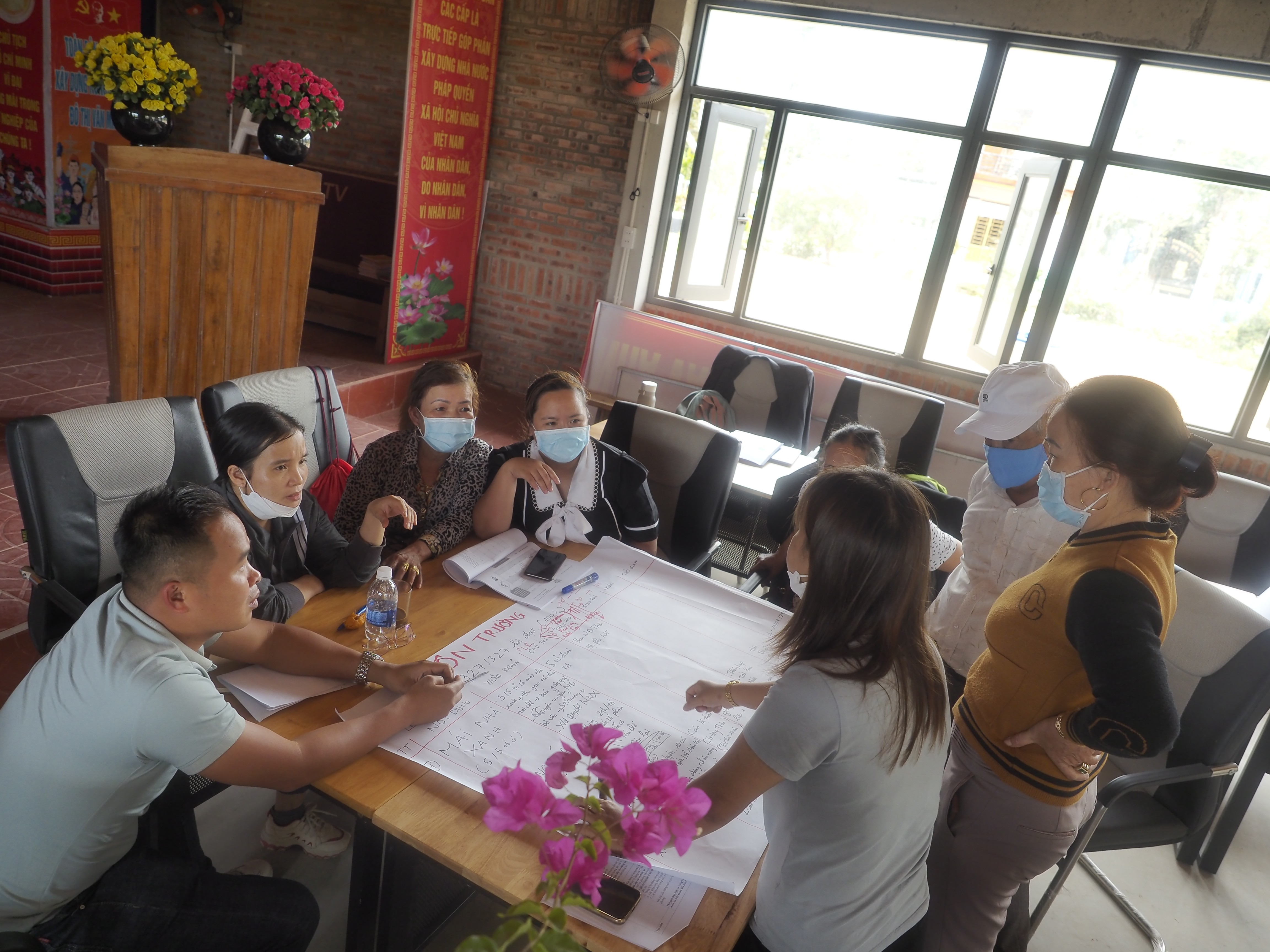
Discussion on training methods for people in Truong Dinh village (Hoa Vang district)
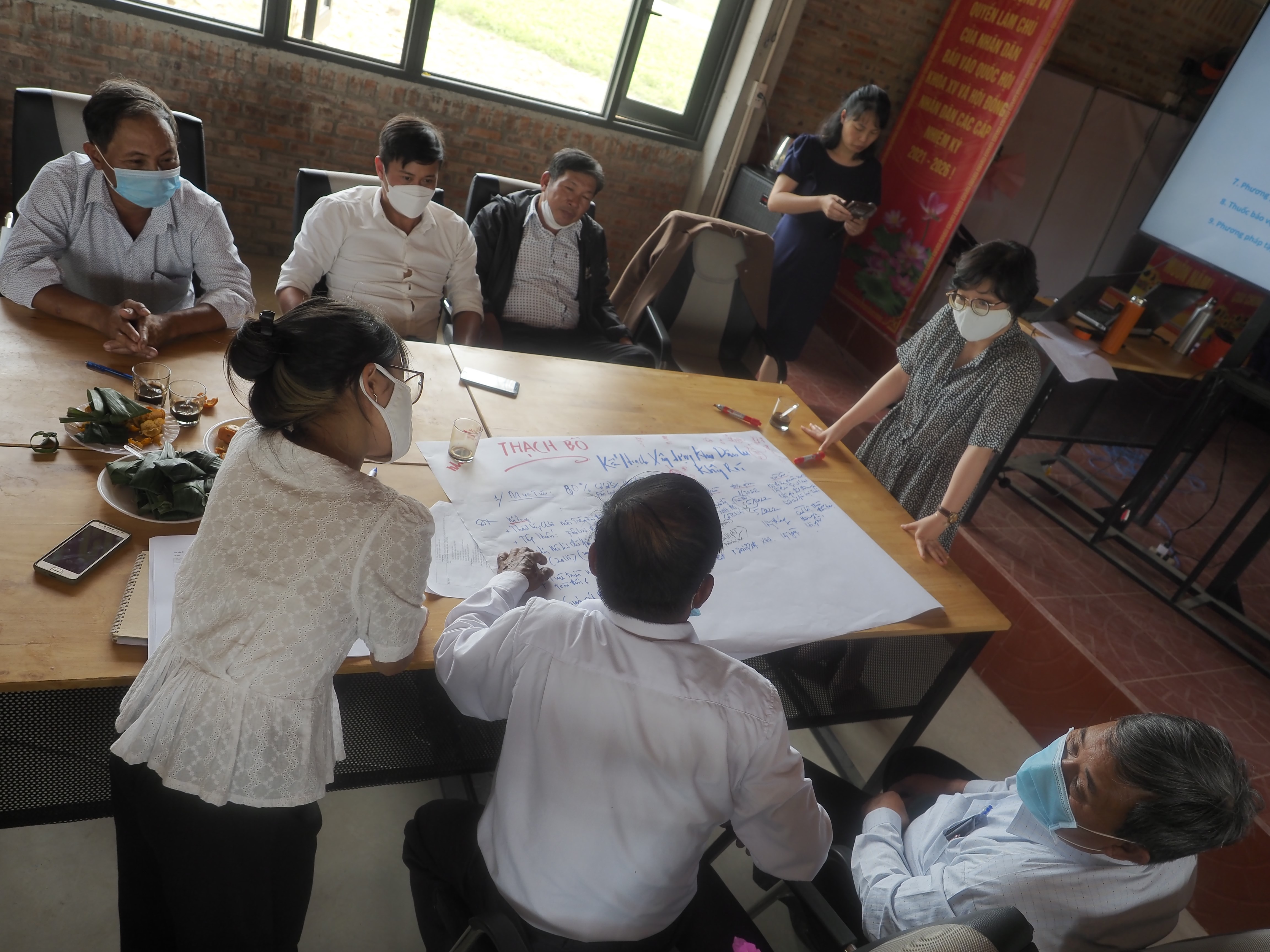
Discussion on training methods for people in Thach Bo village (Hoa Vang district)
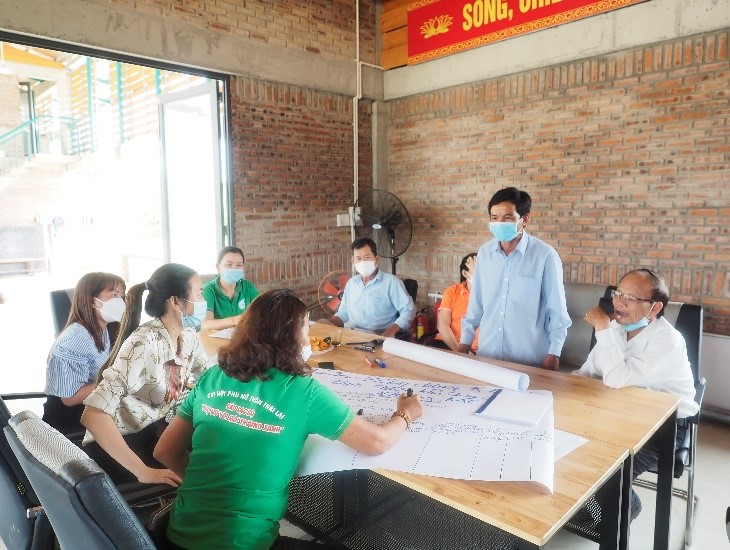
Discussion on training methods for people in Thai Lai village (Hoa Vang district)
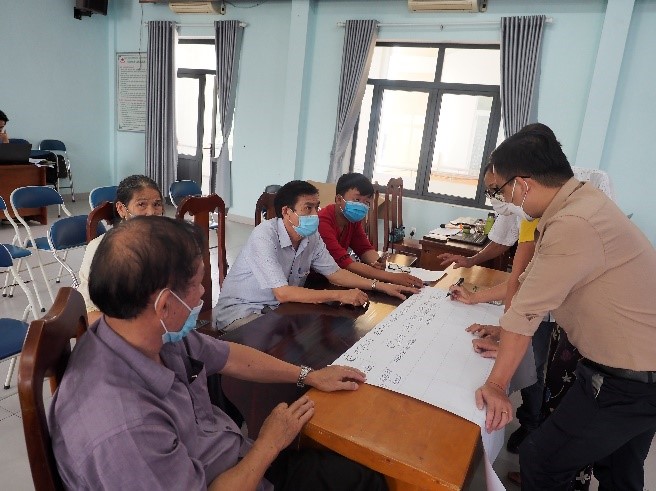
Discussion on training methods for people in West Thanh Khe village (Thanh Khe district)
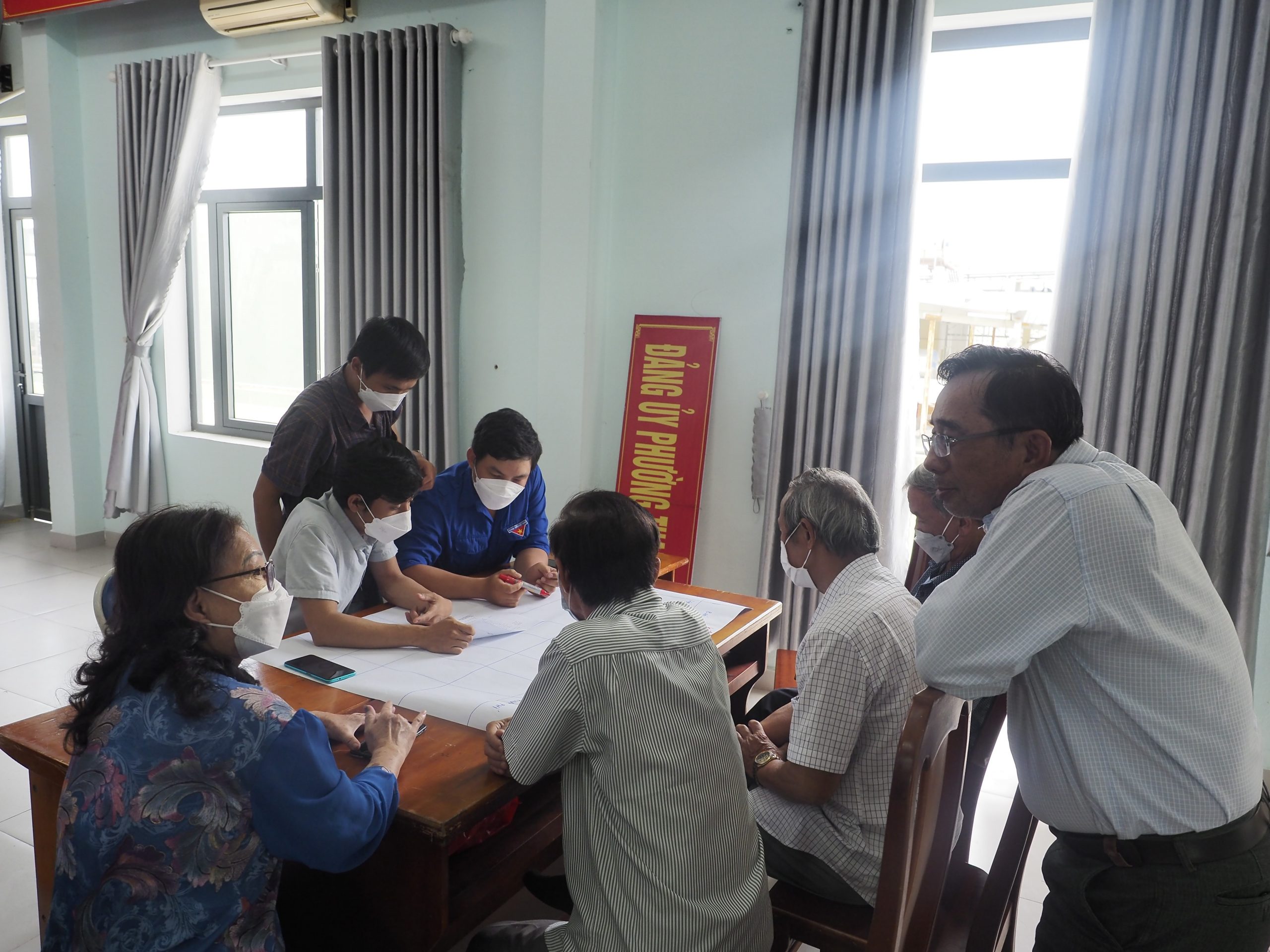
Discussion on training methods for people in Hoa Khe village (Thanh Khe district)

Mr. Le Van But, Secretary of Thach Bo village shared about the village’s implementation plan
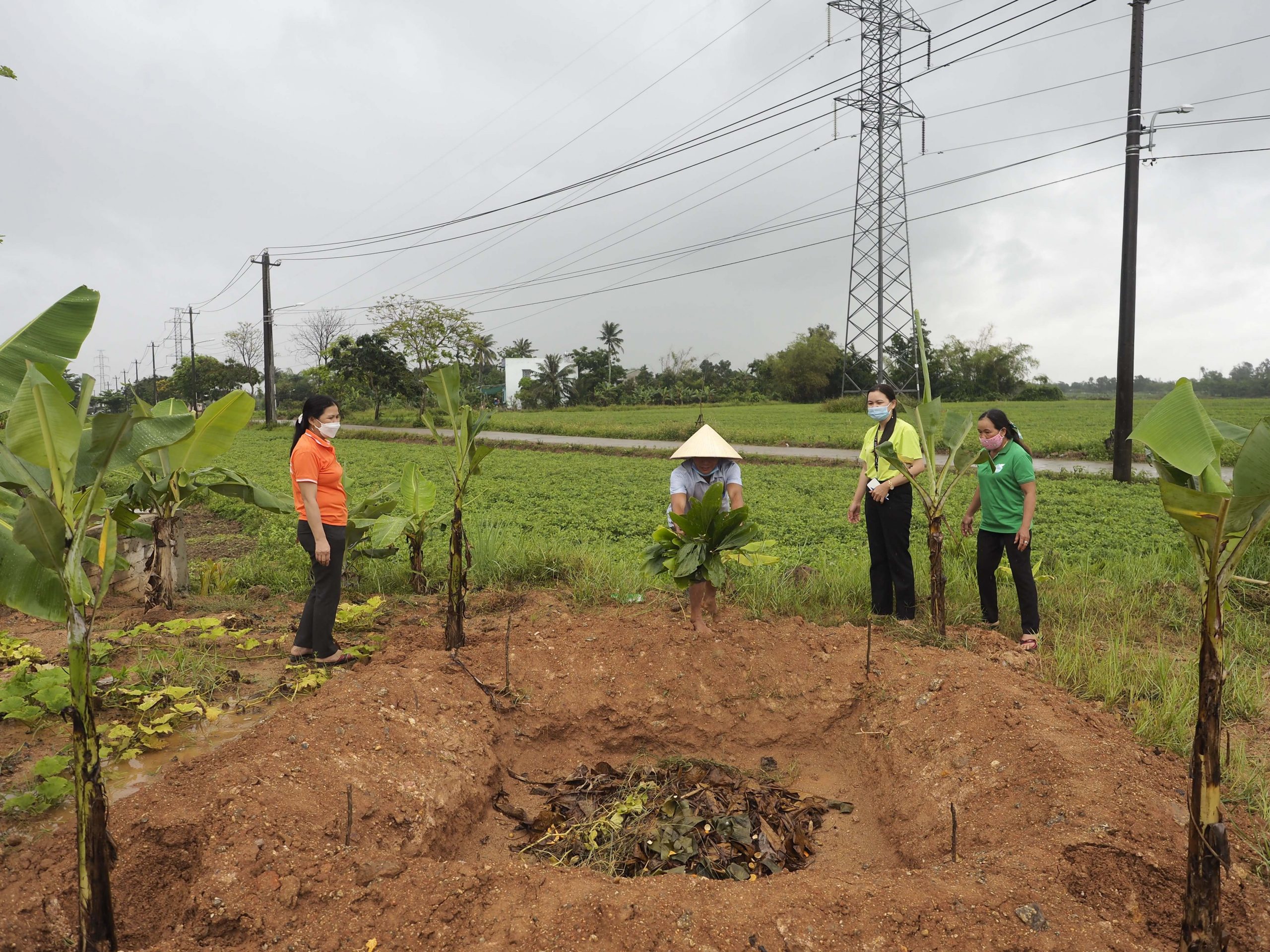
Practitioners visit and practice banana circle
At the end of the training program, the trainees have prepared a plan to organize training sessions for the community in order to promote the sustainable community model in April and May. The model of environmentally sustainable community will gradually be implement in residential areas during this time, promising many more interesting activities and contributing to improving environmental quality in residential areas.
